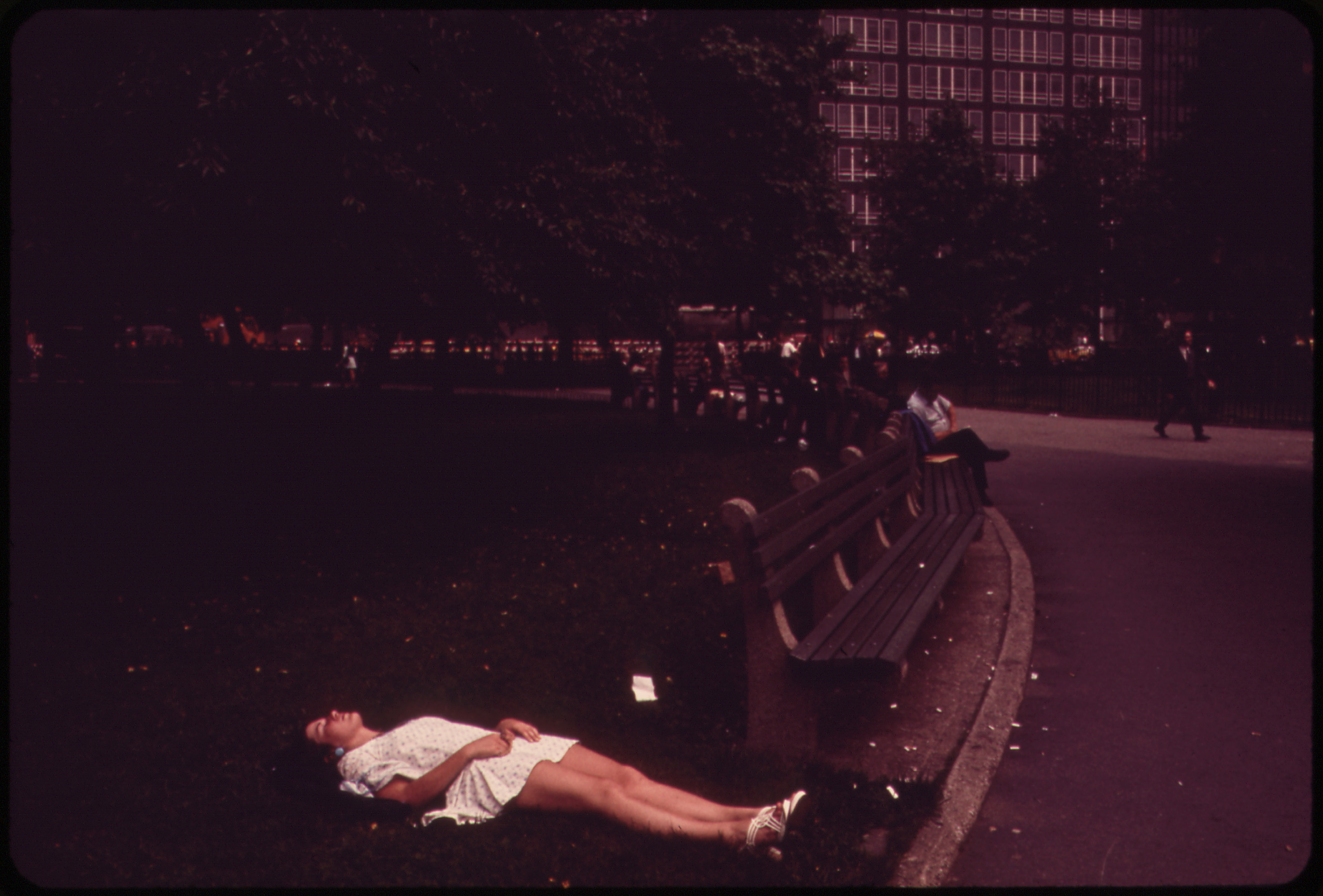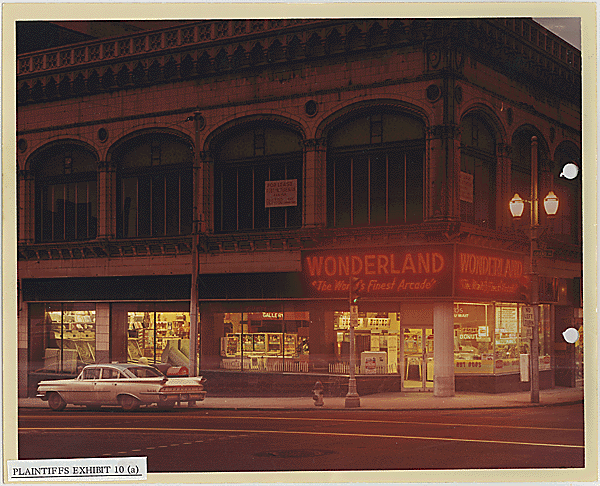 Excuse me, a woman in the hallway calls to us. Do you know where the manager is? I’ve left my wallet in my room and I’m locked out. She carries a sturdy pocketbook, which she holds open for us to show it is missing its wallet. She’s dressed to go out — it’s spring. Miss! Miss! She cries when the aide passes.
Excuse me, a woman in the hallway calls to us. Do you know where the manager is? I’ve left my wallet in my room and I’m locked out. She carries a sturdy pocketbook, which she holds open for us to show it is missing its wallet. She’s dressed to go out — it’s spring. Miss! Miss! She cries when the aide passes.
You lost your wallet again? The aide is from St. Kitts.
How will I go out?
Terrible. The aide tsssks. It’s not in your purse now?
The woman holds it open to her.
My mother shrugs her SOL shrug and raises her eyes at me. C’mon, honey. We pace to the end of the hall. Where now? She asks.
How about down there? I point to the other end of the hall.
Yeah. Yeah. C’mon. Doopdy doo. She grabs me in an elbow lock and makes a dancer’s kick with one leg for her first step, then the second. I join her. We’re winded by the end of the hall. That was fun. Again?
Again!
At dinner, the missing-wallet lady sits with us. She leans forward and cups her mouth in a whisper. I’m terribly sorry. This is awfully embarrassing. I’ve lost my wallet. All my credit cards. I’d meant to treat you.
My mother pats her pocket-less genie pants and gives me an alarmed, private look. Her eyebrows meet in tips between her eyes. She checks the back of her chair. Honey, do you have any… Because… My purse… Do you have keys?
It’s on me, I tell the table, with my magnanimous grin.
My mother sighs in relief. Thank god.
You’re very kind, says the wallet lady. You’re her sister?
Daughter.
Daughter!?
My mother is on to the next conversation in her head. She’s staring at a bald man on the other side of the room eating at a table of only men when he starts shouting racial epithets in front of the all-Caribbean staff. All the employees have just stopped everything and started shouting: Enough of that! None of that! You stop that now! They look at each other and some of us and smile and hoot. You don’t say that! Enough of that!
My god, some people have not even a little bit of class, the wallet lady says.
I’ve seen that man before, my mother says, staring at the racist. I feel like I know him. It’s like déjà vu but something else. Do you recognize him, honey?
Yes, he’s always here. He lives here.
What!? No. I mean, it feels… misty… I have a vague memory… like from a past life.
After dinner I sit on the other double bed in her room and she strips off her clothes for no reason and asks when we’re leaving.
I’ll have to go home pretty soon, I confess to her.
You’re taking me with you, right? You have the keys? Her eyes are lost and angry and panicked. Also, she’s topless. Take me home.
There is no home. And you’re not dressed.
Then with you. She slips on a white tunic from the closet. I have to go. We’re leaving. Okay? C’mon, honey. She walks to the door and peaks out, then peers back with the conspiratorial expression. C’mon honey. Now. We have to go.
*
Secret Americas features writing about images from the U.S. National Archives.
Image via Flickr: “Lunch-Hour Nap in Battery Park, 05/1973,” National Archives and Records Administration.
Elizabeth Kadetsky’s short stories have been chosen for a Pushcart Prize, Best New American Voices and two Best American Short Stories notable citations. Her personal essays have appeared in the New York Times, Guernica, and elsewhere. Her memoir First There Is a Mountain was published by Little, Brown in 2004. She is assistant professor of fiction and nonfiction at Penn State.


